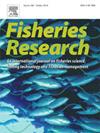海洋保护区的优先评估:以马略卡岛东北部为例
IF 2.3
2区 农林科学
Q2 FISHERIES
引用次数: 0
摘要
在全球范围内,渔业近几十年来发生了重大变化,预计将进一步变化,以应对社会和环境挑战。本研究探讨了各种地方和全球管理措施的优先顺序,旨在确保马略卡岛-卡拉拉贾达海洋保护区(MPA)渔业的未来可持续性,这是一个位于马略卡岛东北部(地中海西部)的海洋保护区。为此,我们使用了q -方法,一种用于研究人类主体性的研究技术,结合定性和定量技术来研究个人的感知、意见、或对特定主题的观点。我们识别并评估了主要利益相关者之间的主要话语,揭示了三种不同的观点,包括对诸如消除非法行为、使欧盟渔业政策适应当地实际情况、增加对拖网捕捞的限制、促进当地消费以及共同管理的重要性等问题的不同观点。此外,在讨论中出现了两点共识:(i)该部门脱碳的必要性,以及(ii)增加公共资金以支持年轻渔民就业的重要性。然而,这两项措施都被认为是不重要的。本研究通过展示Q方法如何应用于MPA潜在演变背景下的地方和全球优先级评估,为综合优先级评估的发展提供了有价值的见解,从而为文献做出了贡献。它强调了小型渔业社区内部观点的多样性,并强调迫切需要建立民主治理结构,以确保这种多样性在公共政策制定中得到体现和考虑。本文章由计算机程序翻译,如有差异,请以英文原文为准。
Priorities assessment in a marine protected area: The case of the Northeast of Mallorca
Globally, fishing has undergone significant transformations in recent decades, with further changes projected in response to social and environmental challenges. This study explores the prioritization of various local and global management measures aimed at ensuring the future sustainability of fisheries within the Llevant de Mallorca – Cala Ratjada Marine Protected Area (MPA), a marine reserve located in the northeastern part of Mallorca Island (Western Mediterranean) To this end, we used Q-method, a research technique used to study human subjectivity that combines qualitative and quantitative techniques to study individuals’ perceptions, opinions, or viewpoints on a specific topic. We identify and evaluate the primary discourses among key stakeholders, revealing three distinct perspectives encompassing different views on issues such as eliminating illegal practices, adapting European Union fisheries policies to local realities, increasing restrictions on trawling, promoting local consumption, and the significance of co-management. Furthermore, two points of consensus emerge across the discourses: (i) the necessity of decarbonizing the sector, and (ii) the importance of increasing public funding to support the employment of young fishers. However, both measures are perceived as low priorities. This study contributes to the literature by demonstrating how Q method can be applied to assess local and global priorities in the context of potential MPA evolution, offering valuable insights for the development of integrative priority assessments. It underscores the diversity of perspectives within small fishing communities and highlights the critical need for democratic governance structures to ensure this diversity is represented and accounted for in public policy development.
求助全文
通过发布文献求助,成功后即可免费获取论文全文。
去求助
来源期刊

Fisheries Research
农林科学-渔业
CiteScore
4.50
自引率
16.70%
发文量
294
审稿时长
15 weeks
期刊介绍:
This journal provides an international forum for the publication of papers in the areas of fisheries science, fishing technology, fisheries management and relevant socio-economics. The scope covers fisheries in salt, brackish and freshwater systems, and all aspects of associated ecology, environmental aspects of fisheries, and economics. Both theoretical and practical papers are acceptable, including laboratory and field experimental studies relevant to fisheries. Papers on the conservation of exploitable living resources are welcome. Review and Viewpoint articles are also published. As the specified areas inevitably impinge on and interrelate with each other, the approach of the journal is multidisciplinary, and authors are encouraged to emphasise the relevance of their own work to that of other disciplines. The journal is intended for fisheries scientists, biological oceanographers, gear technologists, economists, managers, administrators, policy makers and legislators.
 求助内容:
求助内容: 应助结果提醒方式:
应助结果提醒方式:


